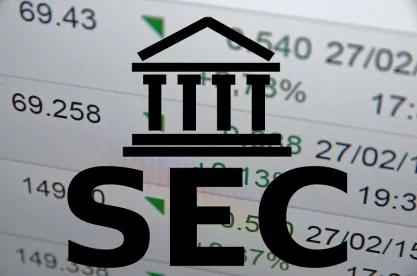The Securities and Exchange Commission (the “SEC”) recently amended its rules to regulate proxy voting advice offered by advisory firms such as Institutional Shareholder Services (“ISS”) and Glass, Lewis & Co. These amendments codify the SEC’s longstanding position that this type of advice generally constitutes a “solicitation” subject to the federal proxy rules (including anti-fraud rules), although it may qualify for certain exemptions from the information and filing requirements of those rules. However, effective December 1, 2021, proxy advisory firms must comply with additional disclosure and procedural requirements in order to continue to rely on those exemptions. The final amendments can be found here.
The SEC’s adoption of these amendments represents the most recent chapter in a decade-long public debate regarding regulatory oversight of proxy advisory firms. Issuers and some investors have expressed concerns about potential conflicts of interest that may affect proxy advisory firms’ recommendations as well as the accuracy of the underlying information and methodologies. In a 2010 concept release, the SEC indicated that it shared these concerns. For their part, many proxy advisory firms (most vocally, ISS) have asserted that proxy voting advice is a specialized form of investment advice that is not subject to the federal proxy rules, emphasizing that these firms are indifferent to the outcome of any proposal for which they make a voting recommendation.
While the SEC’s adoption of final rules would appear to settle the issue, a related lawsuit, first filed by ISS in late 2019, remains pending in U.S. District Court for the District of Columbia. In this lawsuit, ISS alleges that, among other things, the SEC lacks statutory authority to regulate proxy voting advice in this manner. ISS has recently indicated that it intends to resume this litigation, which was held in abeyance while the SEC promulgated final rules. We will provide an update as the litigation progresses.
In the meantime, this alert provides a summary of the recently adopted rules as well as key takeaways for our public company clients.
Summary of Rules and Guidance. Under the final rules, the term “solicitation” under the federal proxy rules now includes any proxy voting advice that (1) makes a recommendation to a shareholder as to its vote, consent, or authorization on a specific matter for which shareholder approval is solicited and (2) is furnished by a person who markets their expertise as a provider of such advice, separately from other forms of investment advice, and sells such advice for a fee (a “proxy voting advice business,” also referred to in this alert as a “proxy advisory firm”). As noted above, this represents a codification of the SEC’s long-standing position. In practical terms, this classification has two effects:
Proxy voting advice is subject to the anti-fraud rules. As a solicitation, proxy voting advice by proxy advisory firms is subject to the anti-fraud provisions of the federal proxy rules (Rule 14a-9). Generally speaking, Rule 14a-9 prohibits any covered communication from containing false and misleading statements of material fact or omitting any material facts that would make the statements not false or misleading. These recent SEC amendments add a new example to Rule 14a-9’s explanatory note, which provides a nonexclusive list of the types of information that, depending on the facts and circumstances, could be materially misleading under the rule (“failure to disclose material information regarding proxy voting advice . . . , such as the proxy voting advice business’s methodology, sources of information, and material conflicts of interest”).
Proxy voting advice businesses must qualify for an exemption to avoid having to comply with the information and filing requirements of the federal proxy rules when providing proxy voting advice. Any person or entity engaging in a proxy solicitation is generally subject to the filing and information requirements of the federal proxy rules (including the filing of a proxy statement) unless an exemption applies. Specifically, there are two exemptions that may be available to a proxy advisory firm:
-
Rule 14a-2(b)(1), which generally exempts solicitations from persons who do not seek the power to act as a proxy for other shareholders and who do not have a substantial interest in the underlying subject matter
-
Rule 14a-2(b)(3), which generally exempts proxy voting advice by a financial advisor to another person with whom the advisor has a business relationship
In its release, the SEC confirmed that, generally speaking, proxy advisory firms remain eligible to continue to rely on these exemptions. The release can be found here.
However, effective December 1, 2021, proxy advisory firms will need to comply with two additional conditions in order to use either of these exemptions. Specifically:
-
Conflicts of Interest Disclosure. Proxy advisory firms will have to clearly disclose in their proxy voting advice (or the electronic medium used to deliver the advice) information regarding conflicts of interest. This includes disclosing both information regarding any interest, transaction, or relationship of the firm or its affiliates that is material to assessing objectivity of the firm’s advice and any policies or procedures the firm has in place to identify and address material conflicts of interest arising from any such interest, transaction, or relationship.
-
Establishment of Procedures to Ensure Issuer Access to Advice and Client Access to Any Issuer Response. Proxy advisory firms will have to adopt and publicly disclose written policies and procedures reasonably designed to ensure that (1) each issuer has access to the firm’s proxy voting advice about that issuer no later than the time at which its recommendations are delivered to clients (the “issuer access” condition) and (2) the firm provides a mechanism by which its clients may be made aware of any written statements by the covered issuer regarding the proxy voting advice in a timely manner prior to voting (the “issuer response” condition). While both of these two conditions are principles-based, the SEC has adopted a nonexclusive safe harbor for each:
-
The issuer access condition will be deemed satisfied if the firm has written policies and procedures reasonably designed to provide issuers free access to their proxy voting advice no later than the time at which its recommendations are delivered to its clients. Under this safe harbor, proxy advisory firms may condition issuer access on issuers’ filing their definitive proxy statement at least 40 days prior to the meeting and agreeing to limit the use and dissemination of the proxy voting advice.
-
The issuer response condition will be deemed satisfied if the firm provides notice to its clients that the issuer has filed, or has informed the firm that it intends to file, additional soliciting materials (including an active hyperlink to those materials on EDGAR when available). The firm may provide this notice on its electronic client platform, through email, or by other electronic means.
-
These issuer access and response requirements would not apply to certain exempt solicitations such as proxy contests or certain M&A transactions (given the accelerated time frames at issue) or to proxy voting advice based on a custom policy that is proprietary to the proxy advisory firm’s client.
Related Guidance for Investment Advisers. Separately, the SEC’s Division of Investment Management supplemented its outstanding guidance regarding the fiduciary responsibilities of investment advisers with respect to the use of proxy advisory firms and proxy voting. Under this updated guidance, investment advisers should take steps to ensure that they take into account issuer responses to a proxy advisory firm’s voting advice to the extent that such responses, when provided with sufficient advance notice, would reasonably be expected to affect the adviser’s voting determination. Further, the SEC recommends that advisers disclose the extent of their use of automated voting (or “robo-voting”) features of a proxy advisory firm and, to the extent such features are used, what policies are in place to ensure that later disclosures by the issuer may be taken into account. The guidance can be found here.
Implementation Timeline. The supplemental guidance to investment advisers was effective on September 3, 2020 (the date of publication in the Federal Register). Given the SEC’s position that most of the changes to the proxy rules codify existing interpretations and guidance, most of the amendments to those rules will become effective November 2, 2020 (60 days after publication in the Federal Register). However, the newly imposed conditions to relying on existing exemptions from the information and filing requirements (specifically, the conflicts of interest disclosure and the establishment of policies ensuring issuer access) will not take effect until December 1, 2021.
Key Takeaways. While these newly amended SEC rules have only limited direct impact on issuers, there are a few key takeaways for our public company clients:
Increased Issuer Access to Proxy Voting Advice. As a result of these rules, beginning with the 2022 proxy season, all issuers for which a proxy advisory firm provides voting advice will receive a free copy of that advice no later than the time at which the firm provides the advice to its clients. For many issuers (especially small- and mid-cap companies), this may be the first time they receive copies of such reports as issuer access currently varies by proxy advisory firm. ISS’s recent practice has been to provide most S&P 500 companies with a draft copy of its report and a brief period (usually 24–48 hours) to review and provide factual corrections prior to issuing the finalized report to its clients. The proposed SEC rules had included a “review and feedback” period that would have codified ISS’s practice, but that procedural feature was omitted from the final rule in favor of a more principles-based approach. While the SEC final rulemaking release encouraged proxy advisory firms to continue existing practices that facilitate dialogue with issuers (such as ISS’s practice), it is unclear whether they will do so.
Check Proxy Timeline — Issuers May Need to File a Proxy Statement at Least 40 Days in Advance of a Meeting to Qualify for Issuer Access. Under the new safe harbors, proxy advisory firms may place conditions on issuer access to their proxy voting advice, including requiring that the issuer file its definitive proxy materials with the SEC at least 40 days prior to the meeting. For the majority of issuers - those that use "notice and access" to disseminate proxy materials - this timing will not require any changes, as notice and access imposes the same 40-day advance filing requirement. However, those issuers that have a more compressed annual meeting timeline (requiring the issuer to provide a full set of printed proxy materials to their shareholders) may want to consider whether to revise their timelines to ensure that they can take advantage of these new access rules, to the extent the proxy advisory firms choose to rely on the safe harbors.
Certain Proxy Voting Advice Is Not Covered by Issuer Access Rules. As noted above, the issuer access rules will not apply to certain time-sensitive solicitations such as proxy contests and M&A solicitations, given the short time frames involved. In addition, these rules will not apply to proxy voting advice based on a custom policy that is proprietary to the proxy advisory firm’s client. In the latter case, the issuer would be better served engaging with the firm’s client (the issuer’s own shareholder), which formulated and adopted the custom policy.
When Does “Final” Mean Final? — ISS Litigation Still Pending. From the SEC’s perspective, it has done everything necessary to finalize these rules. As noted previously, however, ISS intends to revive its lawsuit challenging the SEC’s authority to regulate proxy advisory firms, which means that the federal courts are likely to have the final say.






 />i
/>i

